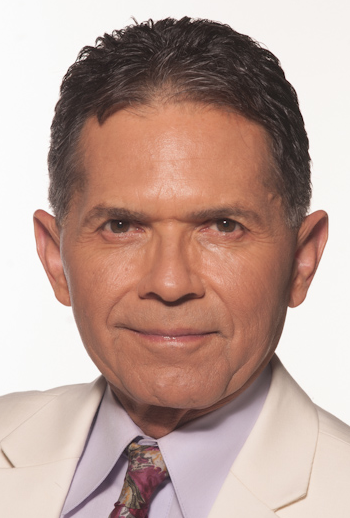By David Magallanes / Guest contributor

David Magallanes
Much has been said these past few weeks regarding the NFL players who “take a knee” during the national anthem. The controversy was inflamed by President Trump, who has far more important things to contend with, when he attempted to stir up his base with his condemnation of the football players and their “lack of patriotism.”
Whether their protest is un-American or disrespectful of the flag or anthem is a matter of perspective. On the one hand, I can understand those who feel that the provocative display is unpatriotic, deplorable and worthy of denunciation. Our military and police serve to protect us and defend our free lifestyles, and failing to rise in respect toward the flag could understandably be perceived as a slap in the face to the fine men and women who place their lives on the line for us.
On the other hand, a silent, nonviolent protest against anything with which we disagree is a guaranteed right enshrined in no less than the Constitution of the United States. Our reaction to the players’ actions could just as justifiably consist of pride in a country that allows—no, encourages—free expression, whether we agree with it or not. A statement generally attributed to English author Evelyn Beatrice Hall (1868 – 1956) encapsulates the belief of our founding fathers: “I disapprove of what you say, but I will defend to the death your right to say it.” It could be said that there is nothing more patriotic than exercising one’s freedom to protest according to one’s belief.
But nature will take its course, as it always does. The football fans could in turn protest by ceasing to attend games or watching them on TV. The lifeblood of the NFL—paying fans—could stop flowing as spectators who disapprove of the protests turn away, which could force the NFL to scramble to repair the damage by limiting players’ rights, which could in turn invite legal action on the part of players and their lawyers. In other words, this could get complicated.
The entire episode will teach us who we are as a nation. Do we sincerely believe in the right to free speech and encourage it, or do we get selective about what can be protested, and what should not? Do we truly support and defend the First Amendment, or only when we approve of what is being said, which violates the letter and the spirit of the amendment?
— David Magallanes is a writer, speaker and professor of mathematics.
***
De Rodillas en el País de la Libertad
Por David Magallanes / Columnista invitado
Ha habido muchos comentarios estas últimas semanas con respecto a los jugadores de la NFL (Liga Nacional del Fútbol Americano) que se echen de rodillas durante el himno nacional. La controversia se vio inflamada por el presidente Trump, quien tiene cosas mucho más importantes que hacer, cuando intentó avivar a sus seguidores con su condena de los futbolistas y su “falta de patriotismo”.
Que su protesta sea anti-estadounidense o que no respete ni la bandera ni el himno nacional es cuestión de perspectiva. Por un lado, puedo comprender el punto de vista de aquellos que sienten que la exhibición provocativa es antipatriótica, deplorable y digna de denuncia. Nuestras fuerzas militares y la policía sirven para protegernos y defender nuestra libertad y nuestros estilos de vida, y al no ponernos de pie por respeto hacia la bandera podría percibirse como una bofetada a los honorables hombres y mujeres que arriesgan sus vidas para nosotros.
Por otro lado, una protesta silenciosa y no violenta contra cualquier cosa con la que no estemos de acuerdo es un derecho garantizado y consagrado en nada menos que la Constitución de los Estados Unidos. Nuestra reacción a las acciones de los jugadores podría justificadamente consistir en nuestro orgullo por un país que permite—pues no, que alienta—la libre expresión, ya sea que estemos de acuerdo o no. Una declaración generalmente atribuida a la autora inglesa Evelyn Beatrice Hall (1868 – 1956) resume la creencia de nuestros padres fundadores: “Desapruebo lo que dices, pero defenderé hasta la muerte tu derecho a decirlo”. Se podría decir que no hay nada más patriótico que ejercer la libertad de protestar según las creencias de uno.
Pero la naturaleza seguirá su curso, como siempre lo hace. Los fanáticos del fútbol a su vez podrían protestar dejando de asistir a los juegos o de verlos en la televisión. La sangre viva de la NFL—los “fans” que pagan—podría dejar de fluir a medida que los espectadores que desaprueban las protestas se alejen, lo que podría obligar a la NFL a luchar para reparar el daño al limitar los derechos de los jugadores, lo que a su vez podría llevar a acciones legales por parte de los jugadores y sus abogados. En otras palabras, esto podría volverse complicado.
Todo este episodio nos enseñará quiénes somos como nación. ¿Creemos sinceramente en el derecho a la libertad de expresión y lo alentamos, o nos hacemos selectivos sobre qué se puede protestar y qué no? ¿Realmente apoyamos y defendemos la Primera Enmienda, o solo cuando aprobamos lo que el otro dice, lo cual viola la letra y el espíritu de la enmienda?
— David Magallanes es un escritor, orador y profesor de matemáticas.
Editor’s note: Amigos805 welcome comments on stories appearing in Amigos805 and on issues impacting the community. Comments must relate directly to stories published in Amigos805, no spam please. We reserve the right to remove or edit comments. Full name, city required. Contact information (telephone, email) will not be published. Please send your comments directly to frank@amigos805.com
